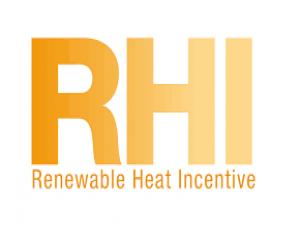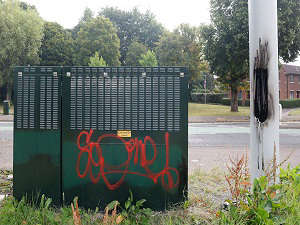
By PA reporter
A public inquiry into a botched green energy scheme, which triggered the collapse of political powersharing in Northern Ireland, will begin holding oral hearings later.
The Renewable Heat Incentive (RHI) probe is being chaired by retired judge Sir Patrick Coghlin.
Tory ally and Democratic Unionist Party (DUP) leader Arlene Foster's role in the scheme was at the heart of the row in Belfast between former coalition partners Sinn Fein and the DUP and she is expected to give evidence in the new year.
Her group of 10 pro-Brexit DUP MPs is propping up the Conservative government on key votes at Westminster.
Sinn Fein has repeatedly indicated its unwillingness to return to devolved coalition government at Stormont with Mrs Foster as first minister until her actions surrounding the RHI are examined by the inquiry.
Sir Patrick will deliver a short opening address then a barrister for the inquiry will begin a statement which is expected to continue for much of the week.
David Scoffield QC will address the context in which the inquiry was established; its terms of reference; the way in which the inquiry has conducted its work since it was established and the themes which have emerged from the evidence gathered so far.
Hundreds of thousands of pages of evidence have already been examined by the inquiry.
The state-funded RHI was established to incentivise businesses to shift to renewable energy sources by offering a proportion of the costs to run eco-friendly boilers.
But in Northern Ireland the subsidy tariffs were set too high and without a cap, so it ended up paying out significantly more than the price of fuel.
This effectively enabled some applicants to "burn to earn" - getting free heat and making a profit as they did so.
Mrs Foster had a central role in establishing the scheme during her time as Stormont economy minister. She has insisted she acted correctly throughout.
Her refusal to accede to Sinn Fein's demand that she step aside as first minister pending the outcome of an inquiry prompted the late Martin McGuinness to resign as Sinn Fein deputy first minister in January, forcing the collapse of powersharing.
While the inquiry will broadly examine the RHI scheme on a chronological basis, it will also work up the line of responsibility, with junior ranking civil servants called to give evidence first and permanent secretaries and ministers due at the end of the hearings.
The probe has served more than 470 notices compelling the production of evidence.
There are three core participants: Stormont's Department of the Economy, the Department of Finance, and Ofgem, which administered the scheme.
The inquiry will run on a three-week cycle comprising two weeks of oral hearings and a week of analytical and preparatory work.
The first week will be taken up with a lengthy opening statement from the legal counsel followed by opening statements from the core participants.


 Spate of 5G mast attacks impacting hospital communications
Spate of 5G mast attacks impacting hospital communications
 Campaign launched to combat rise in online sex offences against children in NI
Campaign launched to combat rise in online sex offences against children in NI
 Arson attacks on Belfast 5G phone masts ‘extremely reckless’, say police
Arson attacks on Belfast 5G phone masts ‘extremely reckless’, say police
 Man dies in hospital after fall from electric scooter
Man dies in hospital after fall from electric scooter
 Slight rise in A* and A grades achieved in A-levels in Northern Ireland
Slight rise in A* and A grades achieved in A-levels in Northern Ireland